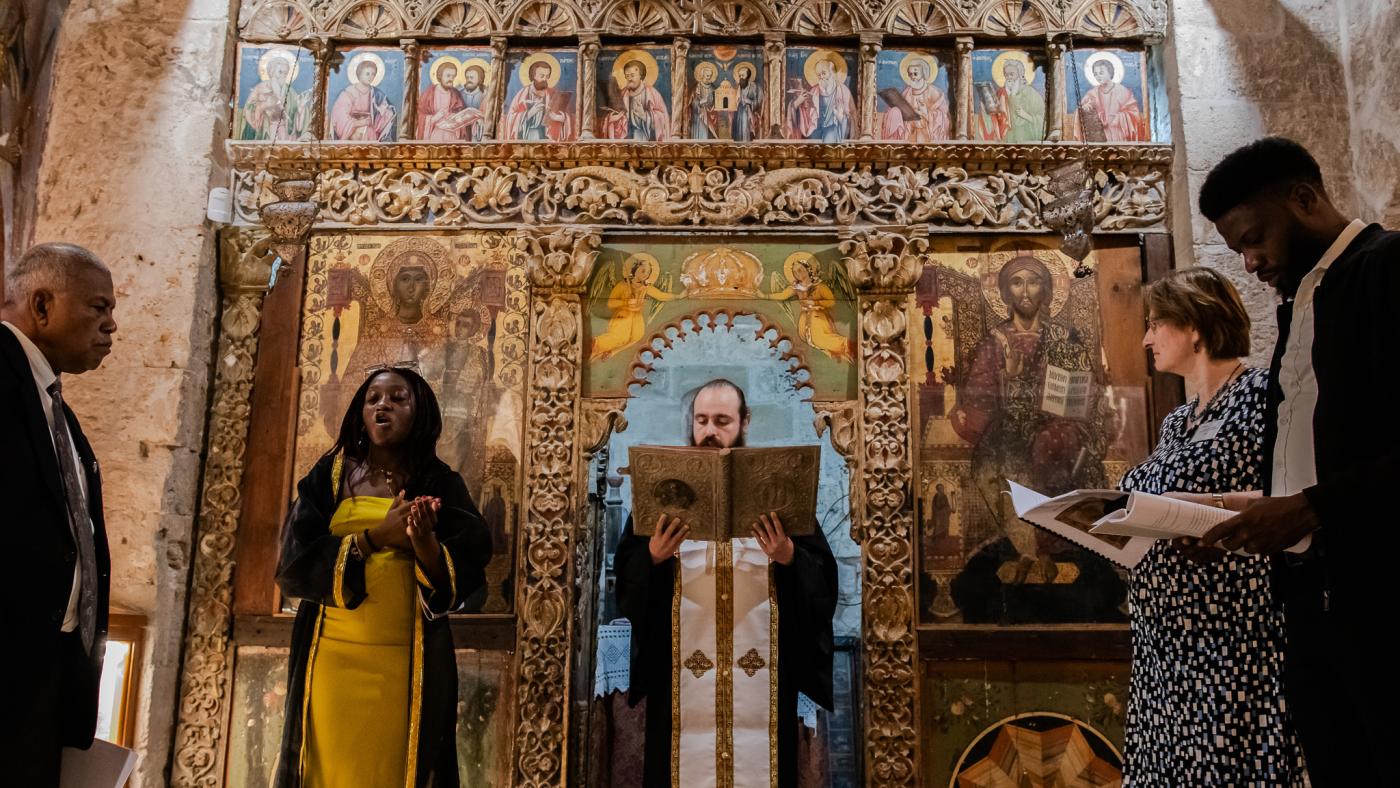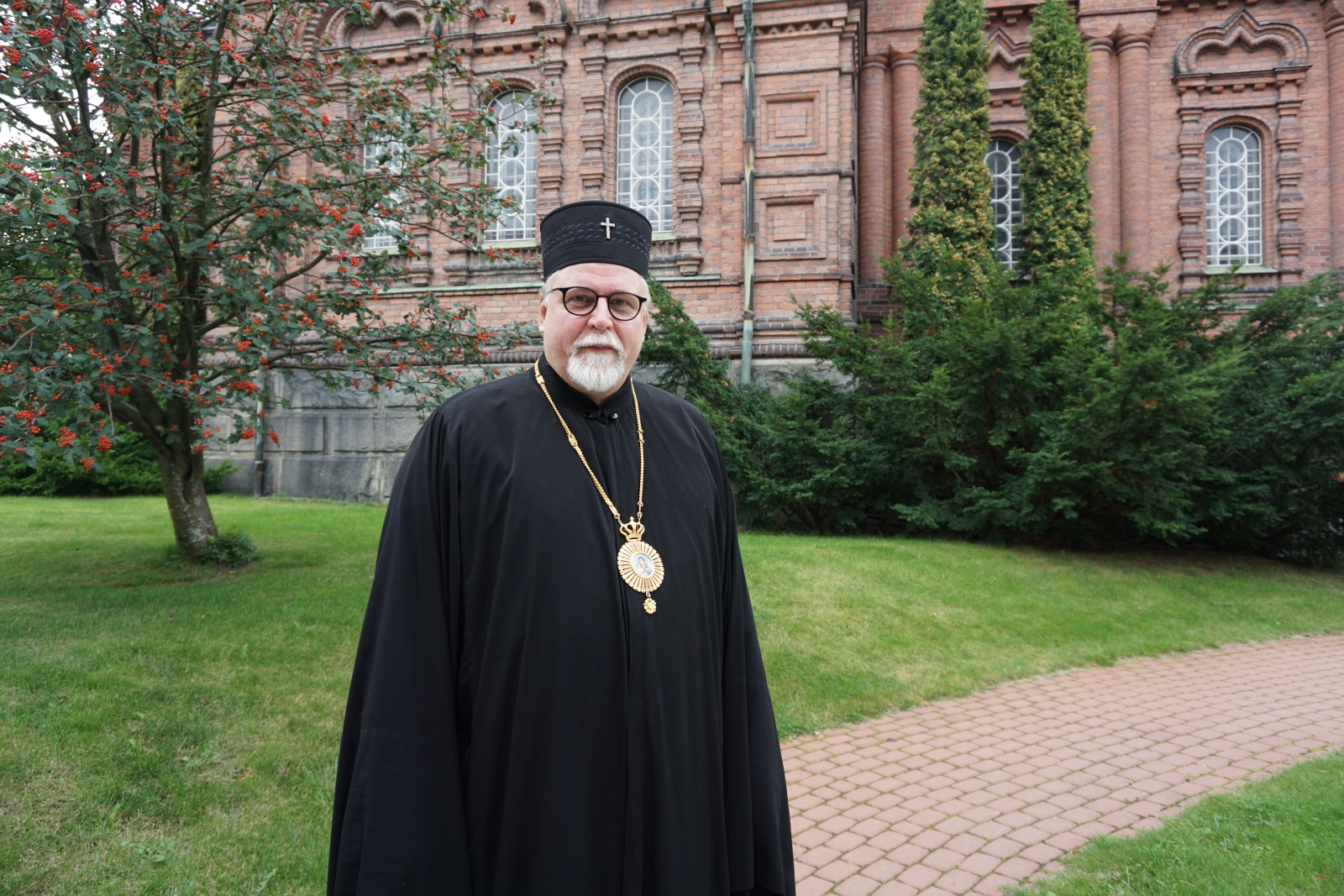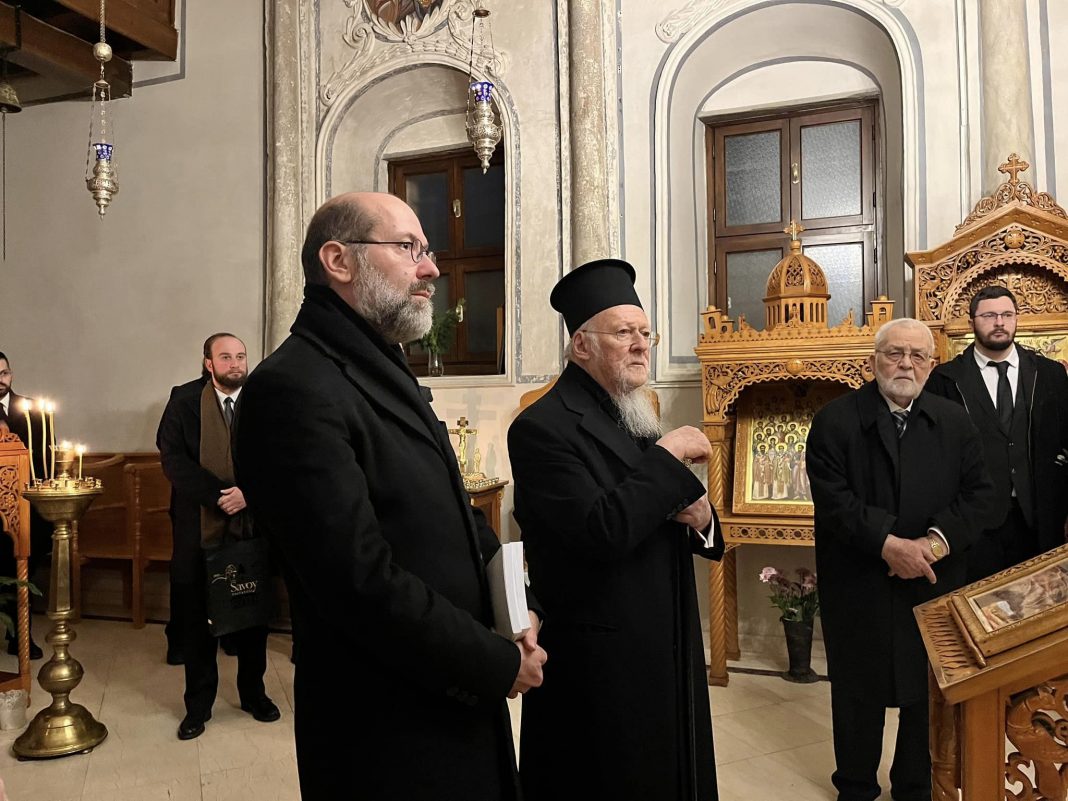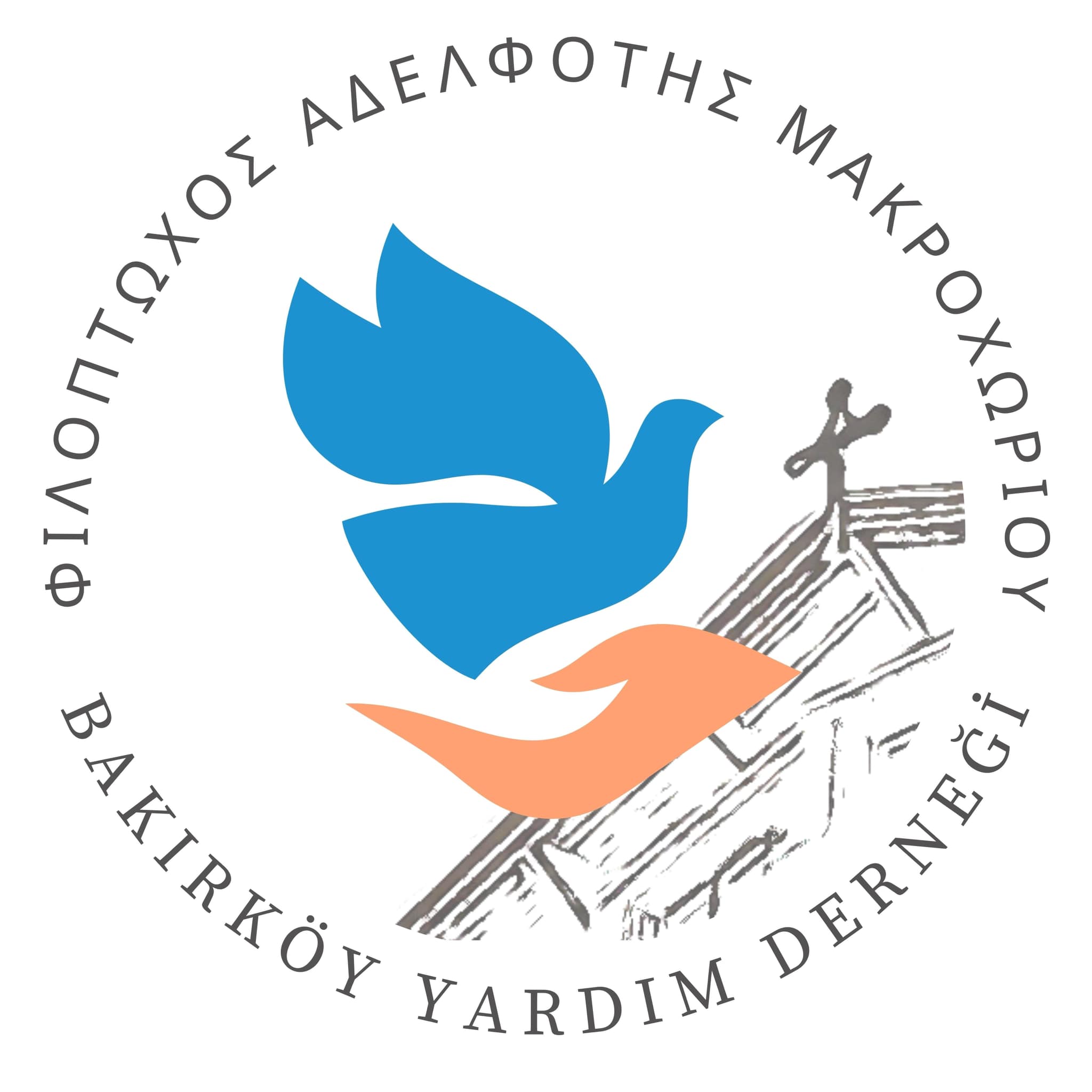Saint Romanos the Melodist (1 October)
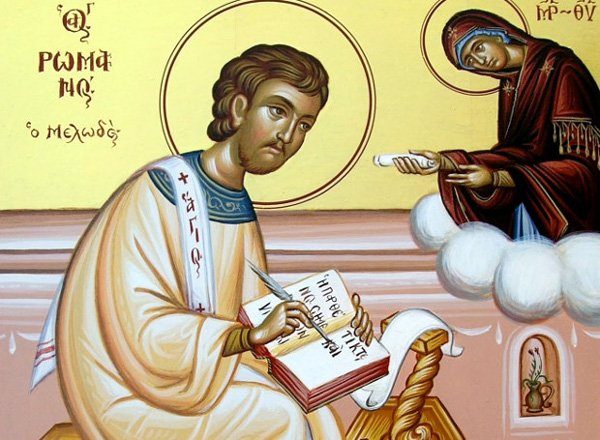

Saint Romanus the Melodist was born in the fifth century in the Syrian city of Emesa of Jewish parents. After moving to Constantinople, he became a church sacristan in the temple of Hagia Sophia. The monk spent his nights alone at prayer in a field or in the Blachernae church beyond the city.
Saint Romanus was not a talented reader or singer. Once, on the eve of the Nativity of Christ, he read the kathisma verses. He read so poorly that another reader had to take his place. The clergy ridiculed Romanus, which devastated him.
On the day of the Nativity, the Mother of God appeared to the grief-stricken youth in a vision while he was praying before her Kyriotissa icon. She gave him a scroll and commanded him to eat it. Thus was he given the gift of understanding, composition, and hymnography.
That evening at the all-night Vigil Saint Romanus sang, in a wondrous voice, his first Kontakion: “Today the Virgin gives birth to the Transcendent One…” All the hymns of Saint Romanus became known as kontakia, in reference to the Virgin’s scroll. Saint Romanus was also the first to write in the form of the Oikos, which he incorporated into the all-night Vigil at his places of residence (In Greek, “oikos”).
For his zealous service Saint Romanus was ordained as a deacon and became a teacher of song. Until his death, which occurred about the year 556, the hierodeacon Romanus the Melodist composed nearly a thousand hymns, many of which are still used by Christians to glorify the Lord. About eighty survive.
Saint Romanos flourished during the reign of Anastasius (491-518). He was from Emesa of Syria, and apparently was born of Jewish parents, for a hymn written in his honour in Greek says he was “of Hebrew stock,” and it has furthermore been noted that he uses many Semitic idioms in his writings. He was baptized an Orthodox Christian, and at some time became a deacon in the Church of Beirut. He was the first composer of the kontakia, the foremost of which is that of the feast of Christ’s Nativity, On this day the Virgin …. In composing many of his kontakia. Saint Romanos was inspired by the hymns of Saint Ephraim of Syria.
Romanus was born in the Syrian town of Emesa. He was, at first, a sexton in Beirut, and later served in the cathedral church in Constantinople in the time of Patriarch Euthymius (490-504 A.D.). Romanus was not well educated and was untrained in chanting, for which he was ridiculed by some of the more educated clergy. St. Romanus tearfully prayed to the Most-holy Theotokos, and she appeared to him in a dream, gave him a scroll, and told him to swallow it. The following day was the Feast of the Nativity. Romanus took his place as a chanter at the ambo, and with an angelic voice sang the hymn “Today the Virgin….” All were amazed at both the content of this hymn and at the magnificent singing of the chanter. Having received the poetic gift from the Theotokos, Romanus composed over a thousand Kontakia. Romanus entered into rest as a deacon of the Great Church, Hagia Sophia, in Constantinople. He joined the angelic choirs in the year 510 A.D.
Apolytikion of Romanos the Melodist
Plagal of the Fourth Tone
The image of God, was faithfully preserved in you, O Father. For you took up the Cross and followed Christ. By Your actions you taught us to look beyond the flesh for it passes, rather to be concerned about the soul which is immortal. Wherefore, O Holy Romanos, your soul rejoices with the angels.
Kontakion of Romanos the Melodist
Plagal of the Fourth Tone
As a harmonious harp of lofty wisdom from on high and an expounder of things seen in God-inspired ascents, we extol thee, Father Romanos, and we hymn thee. As a trumpet of the gifts that pass the mind of man, do thou rouse us to divine and saving watchfulness, as we cry to thee: Rejoice, O Father elect of God.
Source: oca.org / goarch.org / westserbdio.org

